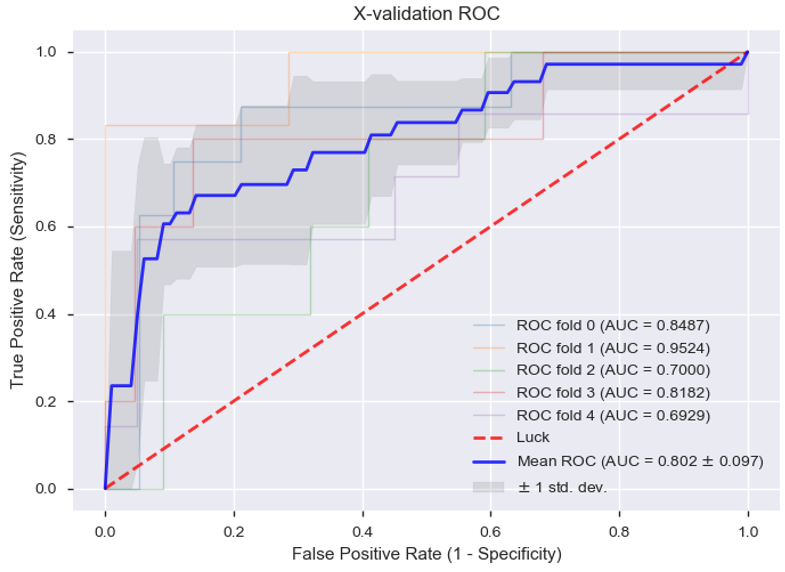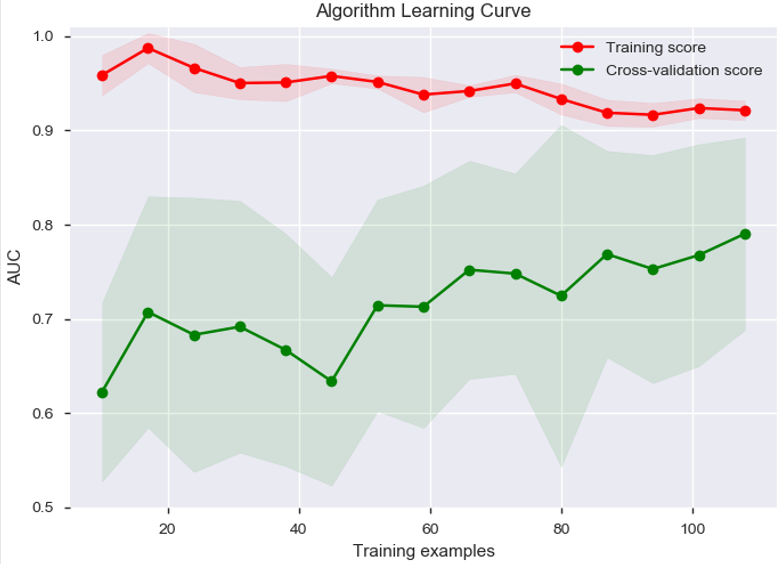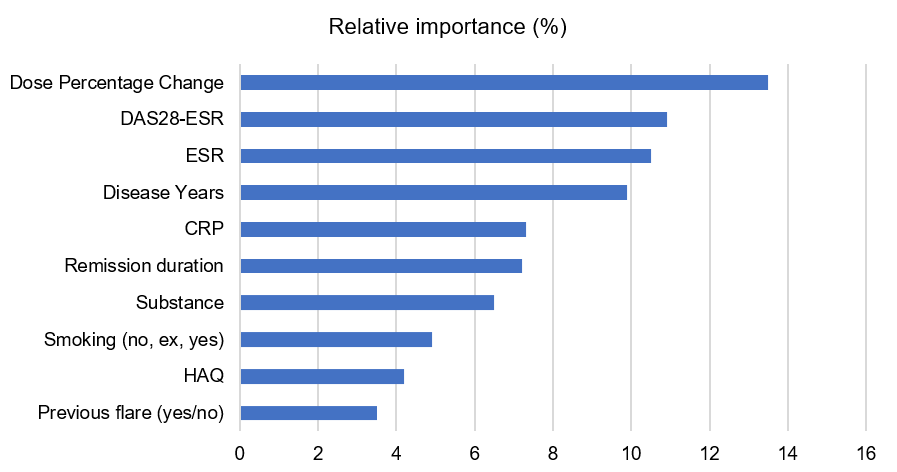Session Information
Date: Tuesday, November 12, 2019
Title: 5T092: RA – Treatments IV: Novel Therapy & Predicting Response (2768–2773)
Session Type: ACR Abstract Session
Session Time: 2:30PM-4:00PM
Background/Purpose: Tapering or stopping conventional and biologic DMARDs in patients with rheumatoid arthritis (RA) in stable remission may be feasible in a subset of patients [1]. However, the prediction of the patients’ individual flare risk remains challenging. Hence, reliable models based on machine learning algorithms could be helpful tools for flare prediction [2]. Therefore, the purpose of this study was to investigate the feasibility of building a predictive model for estimating the individual flare probability in RA patients tapering biologic DMARDs using (1) a small cohort of patients, (2) high quality data and (3) a combination of different machine learning models.
Methods: Longitudinal clinical data of RA patients on biologic DMARDs from the phase-3, multicentre, randomised, open, prospective, controlled, parallel-group RETRO study (EudraCT number 2009-015740-42) was used. In order to exploit the flexibility obtained by combining different machine learning models a stacking meta-classifier is used [3]. At first, four models are trained: log. regression, random forest, k-NN and naïve Bayes which output the flare probability at each patient visit. These probabilities are the input features for the stacking logistic regression meta-classifier. The final prediction performance expressed as the AUROC is estimated using the nested cross-validation [4]. The importance of single predictors was estimated using the permutation importance approach [5].
Results: Data of 41 RETRO study patients with 135 follow-ups were used. The measured AUROC of the model was 0.802 (95%CI 0.717 – 0.887, Figure 1). A steadily growing model performance was observed with the increasing size of the available data (Figure 2). Of the ten most important variables for the machine learning model, the dose percentage change of bDMARD, clinical disease activity (DAS28-ESR), disease duration and inflammatory markers such as ESR or CRP reached the highest significance (Figure 3).
Conclusion: It is possible to train a good predictive model for RA flare probability with small data of high quality using a flexible combination of different classifiers. These results confirm the feasibility of guided tapering based on machine learning models and show that such models could be a reliable flair risk assessment tool for physicians in the future.
References:
[1] Haschka J et al. Ann Rheum Dis 2016; 75:45-51
[2] Vodencarevic A et al. DATA 2018; 187-192
[3] Tang J et al. CRC Press 2015; 498-500
[4] Cawley GC et al. J Mach Learn Res 2010; 11:2079-2107
[5] Breiman L Mach Learn 2001; 45:5-32
Dose Percentage Change: change in the percentage of full standard dose from its last value recorded within last 24 weeks; DAS28: Disease Activity Score 28; ESR: Erythrocyte Sedimentation Rate; CRP: C‐Reactive Protein; HAQ: Health Assessment Questionnaire
To cite this abstract in AMA style:
Vodencarevic A, Simon D, Hartmann F, Reiser M, Hueber A, Tascilar K, Kleyer A, Zimmermann-Rittereiser M, Schett G. Individually Tailored Predictions of Flare Probability for Rheumatoid Arthritis Patients on Biologic DMARDs Based on Machine Learning Stacking Meta-Classifier [abstract]. Arthritis Rheumatol. 2019; 71 (suppl 10). https://acrabstracts.org/abstract/individually-tailored-predictions-of-flare-probability-for-rheumatoid-arthritis-patients-on-biologic-dmards-based-on-machine-learning-stacking-meta-classifier/. Accessed .« Back to 2019 ACR/ARP Annual Meeting
ACR Meeting Abstracts - https://acrabstracts.org/abstract/individually-tailored-predictions-of-flare-probability-for-rheumatoid-arthritis-patients-on-biologic-dmards-based-on-machine-learning-stacking-meta-classifier/



